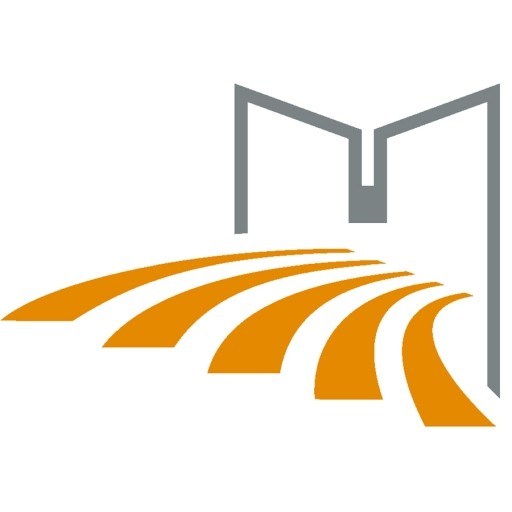Photos of university / #uniosnabrueck
The Bachelor's degree program in English and American Studies at the University of Osnabrück offers students a comprehensive and interdisciplinary education in the language, literature, culture, and societies of English-speaking countries. This program is designed to equip students with advanced language skills, critical thinking abilities, and intercultural competencies necessary for diverse professional fields such as education, media, publishing, translation, international relations, and cultural management. Throughout the course of study, students engage with a wide range of texts, from classic and contemporary literature to media and digital content, fostering a deep understanding of linguistic nuances and cultural expressions across different communities.
The curriculum combines language proficiency with cultural studies, emphasizing both theoretical knowledge and practical skills. Students explore historical developments, social dynamics, and contemporary issues within Anglophone countries, which enables them to analyze and interpret cultural phenomena in context. Coursework includes modules on linguistics, literary analysis, cultural history, media studies, and translation, providing a balanced foundation for academic and professional pursuits. Alongside classroom learning, students participate in seminars, project work, and internships, promoting active engagement and applied skills.
The program also offers opportunities for international exchange and study abroad experiences, allowing students to immerse themselves in Anglophone environments, improve their intercultural communication, and expand their global perspectives. Additionally, the degree prepares graduates for postgraduate studies or entry into careers in teaching, journalism, editing, international organizations, and more. With a focus on fostering linguistic dexterity, cultural awareness, and analytical skills, the Bachelor's in English and American Studies at the University of Osnabrück enables students to develop a nuanced understanding of the English-speaking world and its global influence. Upon completion, graduates will be well-equipped to pursue diverse professional paths and contribute meaningfully to international and intercultural dialogue.
Educational organisation
Courses are taught both in form of lectures and seminars; the latter are the core of the programme's educational organisation. All courses in the core programme are taught exclusively in English, and the free electives are partly taught in German. Therefore, a sufficient degree of German language proficiency is required in order to attend these electives.Since participants are expected to be familiar with the basics of English and American literary and cultural studies and linguistics upon enrolment, all courses are non-consecutive and may be taken at any point during the studies. This ensures a wider range of choice at any given time for the participants on the one hand, and a self-determined, self-organised study experience on the other.
Participants may choose to specialise in English or American literary and cultural studies or linguistics, according to their strengths and interests. After three semesters of study, participants are expected to write a Master's thesis in one of these three core areas. In accordance with the institute's research specialisations in the fields of law and literature or cognition and poetics, for example, interdisciplinary approaches are very much encouraged in the Master's theses.
A mandatory self-organised internship during the course of studies complements the programme Possibilities for this internship include, but are not limited to, editorial offices and publishing houses, museums, theatres, libraries, or the media. Participants in the programme also frequently participate in the organisation of events and courses at the institute - e.g. summer programmes, conferences, or tutorials for undergraduates - for internship credits.
Study abroad unit(s)
Participants of the English and American Studies Master's programme are expected to spend a period of at least three months in an English-speaking country if they have not already done so during their Bachelor's programme. During this stay, participants work in an area relevant to their studies to complete their internship module (e.g. as interns in libraries, editorial offices, public relations, the media; see above), or continue and supplement their regular studies at a university abroad. The stay abroad is usually self-organised, and supervised by the institute's study coordinator.Forms of assessment
Participants are assessed primarily through written and oral exams and academic papers, the latter being the most common form of assessment. Other forms of assessment include podcasts, portfolios, and essays. Courses award between three and five credit points. The entire programme awards 120 ECTS credits, Master's thesis included.Course objectives
The fields of linguistics and English and American literary and cultural studies are deeply intertwined, and participants graduating from the programme will depart with a comprehensive, interdisciplinary and in-depth knowledge of the fields. The ability to integrate theoretical viewpoints, methodological approaches, and knowledge from different disciplines will be a distinct advantage and give alumni a professional head-start, no matter which career they end up pursuing.Transferable soft-skills such as self-organisation, independent research, team work, networking, communication and presentation skills are central part of the programme and will prove instrumental in subsequent careers, regardless of the area of employment.
Graduates will be highly qualified to work in fields as diverse as international relations, advertisement, editing and translation, cultural management, event marketing, as well as in the culture sector - from museums, libraries and archives, to media production. Participants will be singularly educated and trained in the craft of academic research and will thus be prepared to study at the PhD level and work as academic teachers and researchers.
Language requirements
Students are required to have a good command of German and English from the beginning of their studies in order to understand lectures, participate in discussions and take examinations.Proficiency in English is to be proved through a passed IELTS exam (with at least 6.0 points) or by equivalent certificates of qualification. A Bachelor's degree in English or American studies is also accepted.
Proficiency in German is to be proved by TestDaF (at least 12 points), DSH-1 or equivalent certificates of qualification.
Moreover, proficiency in another foreign language must be proved on B1 level.
Required DSH / TestDaF
YesAcademic requirements
Applicants must have a Bachelor's degree in English or American studies.Proficiency in English is to be proved through a passed IELTS exam (with at least 6.0 points) or by equivalent certificates of qualification. A Bachelor's degree in English or American studies is also accepted.
Proficiency in German is to be proved by TestDaF (at least 12 points), DSH-1 or equivalent certificates of qualification.
Moreover, proficiency in another foreign language must be proved on B1 level.
Enrolment fees
Students have to pay an enrolment fee of approx. 330 EUR. For students receiving a scholarship from a German funding organisation, enrolment fees are reduced.Students must provide proof of health insurance upon registration.
Costs of living
The costs of living for students are currently estimated at a minimum of 670 EUR per month.Job opportunities
Students may be employed as student assistants.Arrival support
At the beginning of each semester, the International Office offers all new international students a pick-up service and an orientation week ("Welcome Week") which enables new students to complete all official formalities, to become acquainted with the city and university, and to get to know other international and German students.Services and support for international students
The intercultural mentoring programme at Osnabrück University ("imos") provides new international students with social and subject-specific support by a fellow student and an academic staff member.In addition, an international cultural programme ("JOIN-OS") offers several day trips to cities in the region as well as visits to the theatre, Christmas dinner, etc.






